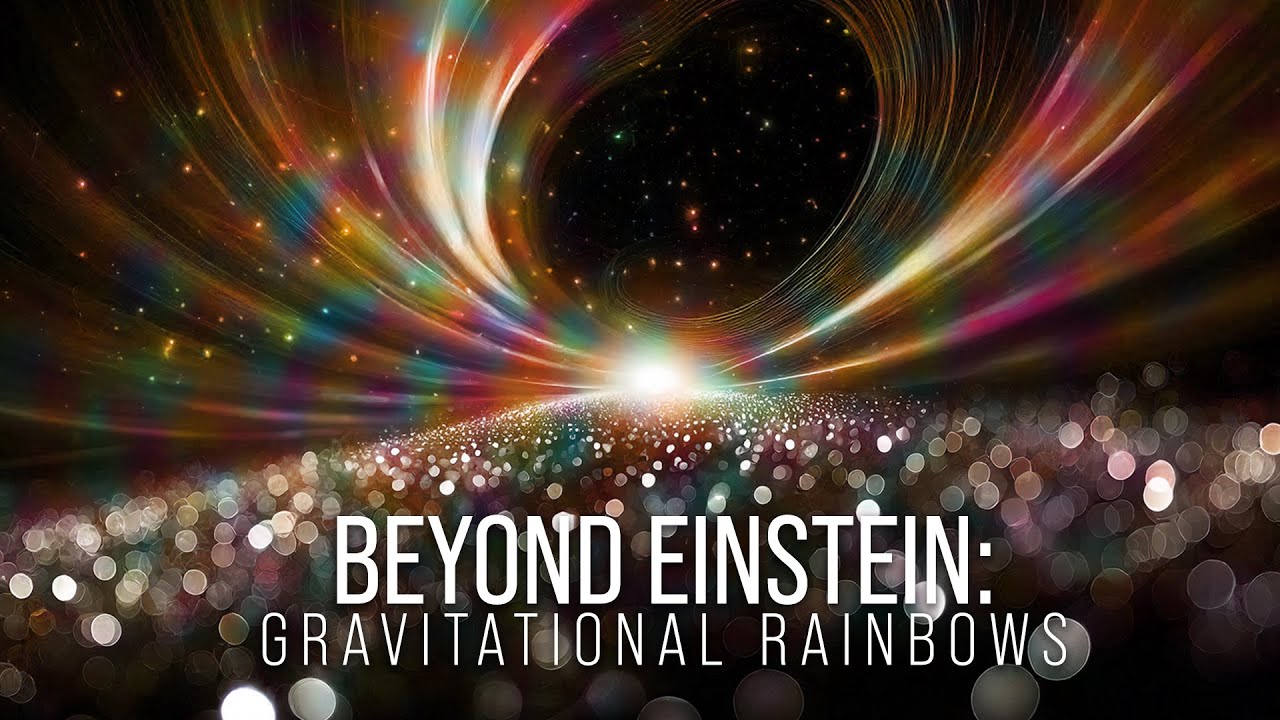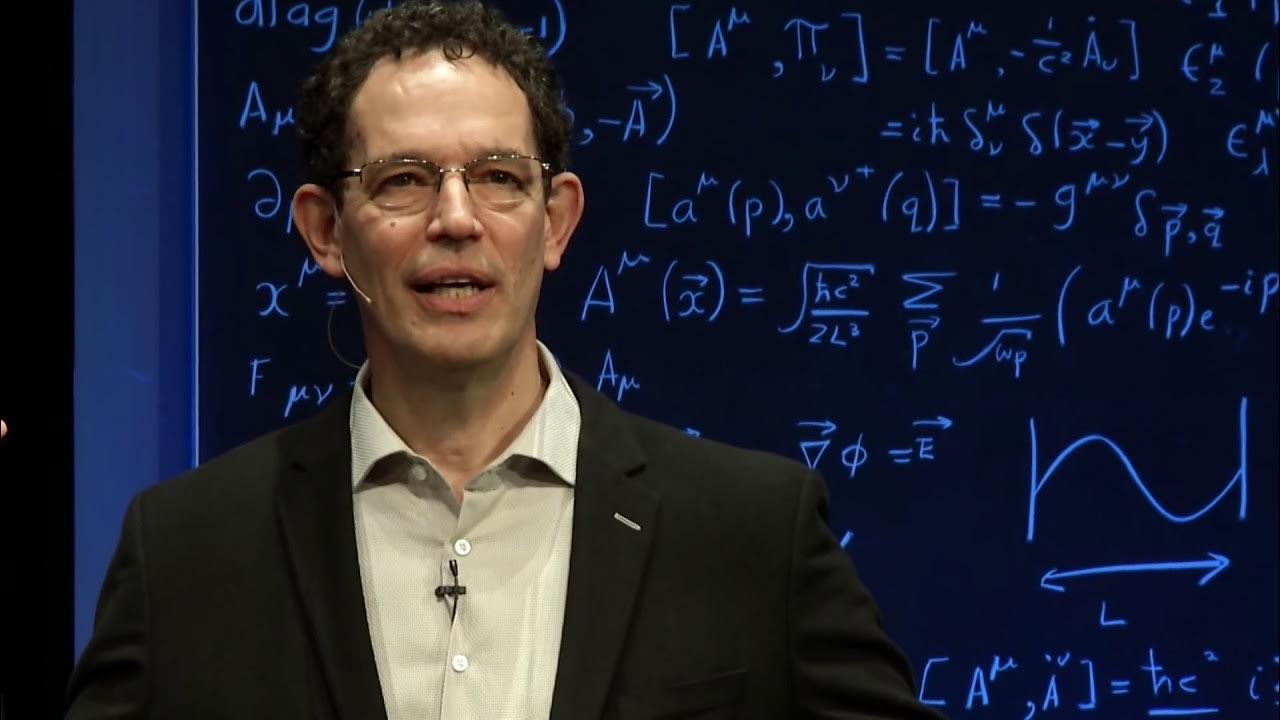Philosophy of Physics
TLDRThis script explores the evolution of our understanding of the Universe, from distinct earthly and celestial laws to Newton's unification through his laws of motion and gravity. It delves into the unification of electricity, magnetism, and optics by Maxwell, and how modern physics, including General Relativity and Quantum Mechanics, has refined our comprehension. The script ponders the possibility of a single set of fundamental laws governing everything and discusses the implications for phenomena like consciousness. It highlights the practical and philosophical significance of physics, from enabling technology to fueling curiosity about the cosmos, and touches on unsolved mysteries like dark matter and energy, suggesting the potential existence of a multiverse.
Takeaways
- 🌌 The historical view of the universe as having different laws for Earth and the heavens has been replaced by a unified understanding of physics.
- 📚 Isaac Newton’s laws of motion and universal gravitation unified the principles governing both earthly and celestial bodies.
- 🔧 James Clerk Maxwell's electromagnetic theory consolidated the understanding of electricity, magnetism, and optics under one framework.
- 🔬 The advancement of knowledge often leads to the unification of diverse phenomena under fewer fundamental laws, suggesting a potential single set of universal laws.
- 🌐 General Relativity and Quantum Mechanics have superseded Newton's and Maxwell's laws, offering deeper insights into gravity and electromagnetism.
- 🌑 Einstein's General Theory of Relativity interprets gravity not as a force but as a curvature of space-time caused by mass.
- 📐 Quantum Mechanics posits that electric and magnetic fields are illusions created by the exchange of photons between charged particles.
- 🔮 Newton's and Maxwell's laws were approximations that worked well under most observable conditions but are not universally accurate.
- 🧬 Physics underlies chemistry and biology, and potentially all phenomena, including human societies and individual lives, according to some perspectives.
- 🤖 The laws of physics are foundational to modern technologies like computers and GPS, which rely on quantum mechanics and general relativity.
- 🚀 Human curiosity and the pursuit of understanding the universe have led to unexpected discoveries, such as the prediction and discovery of Neptune.
- 🌌 The phenomena of dark energy and dark matter challenge our current theories and may point to a more complex or different understanding of the universe.
- 🌀 The concept of a multiverse suggests the existence of multiple universes with potentially different physical laws, governed by a higher set of fundamental laws.
Q & A
How did the view of the Universe change with Isaac Newton's theories?
-Isaac Newton's theories introduced the concept that there is one set of laws, specifically his three laws of motion and the law of universal gravitation, that apply to all objects on Earth and in the Universe, unifying the previously separate views of earthly and celestial mechanics.
What was the significance of James Clerk Maxwell's theory in the context of electromagnetism and optics?
-James Clerk Maxwell's theory unified the previously separate fields of electromagnetism and optics by proposing that light is a wave of electric and magnetic fields, thus explaining both electricity, magnetism, and the behavior of light with a single set of laws.
What is the fundamental idea behind the pursuit of a single set of laws to explain all phenomena in the Universe?
-The fundamental idea is the pursuit of a 'Theory of Everything,' where all seemingly unrelated phenomena can be explained by a minimal set of fundamental laws, reflecting the historical pattern of reducing complex phenomena to simpler underlying principles.
How does General Relativity differ from Newton's Theory of Gravity?
-General Relativity, proposed by Albert Einstein, describes gravity not as a force but as a curvature of space-time caused by mass, which contrasts with Newton's view of gravity as a force acting between masses.
What is the concept of Quantum Mechanics in relation to electromagnetism?
-Quantum Mechanics suggests that electric and magnetic fields do not exist in the classical sense; instead, forces are created by the exchange of photons between charged particles, challenging the continuous field concept of Maxwell's Laws.
Why do Newton's Law of Gravity and Maxwell's Laws appear to be correct under most conditions?
-Newton's Law of Gravity and Maxwell's Laws appear to be correct because they provide very good approximations under most everyday conditions that humans can observe, despite being superseded by more accurate theories like General Relativity and Quantum Mechanics.
What are the implications of the belief that all phenomena, including human societies, are governed by the laws of physics?
-This belief implies a deterministic universe where everything, from historical events to individual lives, is the result of physical laws acting on atoms and molecules, raising philosophical questions about free will and consciousness.
How does the study of physics relate to other scientific disciplines like chemistry and biology?
-Physics is foundational to chemistry and biology, as it explains the underlying principles governing atomic and molecular interactions that form the basis of chemical reactions and biological processes.
What is the analogy used in the script to illustrate the importance of understanding fundamental principles rather than memorizing specific instances?
-The script uses the analogy of learning to add numbers. Memorizing every possible sum is impractical, whereas understanding the rule of long addition allows one to add any two numbers effectively, emphasizing the value of general principles over specific instances.
What are 'dark energy' and 'dark matter', and why are they significant in the context of Einstein's General Theory of Relativity?
-Dark energy and dark matter are phenomena that current theories, including General Relativity, cannot fully explain. Dark matter is related to the unaccounted-for mass needed to hold galaxies together, while dark energy is associated with the accelerating expansion of the Universe. Their existence suggests that our understanding of the Universe may still be incomplete.
What is the concept of a 'Multi-verse' and how does it relate to the laws of physics?
-A Multi-verse is a hypothetical collection of multiple universes, each potentially having different physical laws. It suggests that while individual universes may have unique laws, there could be a higher set of fundamental laws governing the entire Multi-verse.
Outlines
🌌 The Unification of Universal Laws
This paragraph discusses the historical shift in understanding the universe from a dualistic view to a unified one, thanks to the contributions of Isaac Newton and James Clerk Maxwell. Newton's laws of motion and universal gravitation suggested a single set of principles governing both earthly and celestial bodies. Maxwell's equations unified electricity, magnetism, and optics under electromagnetism. The paragraph also touches on the evolution of these theories with the advent of General Relativity and Quantum Mechanics, which challenge the classical views by describing gravity as space-time curvature and electromagnetic fields as interactions of photons, respectively.
🤔 The Role of Physics in Explaining the Universe
The second paragraph explores the debate over whether the fundamental laws of physics can account for all phenomena, including human consciousness, or if some aspects like the mind's consciousness are beyond physical explanation. It acknowledges the vast explanatory power of physics in understanding biological processes and chemical reactions down to atomic and molecular interactions. The paragraph also highlights the limitations of a physics-based perspective in capturing the logical or semantic meaning of complex systems like computers or neon signs, yet emphasizes the importance of learning fundamental principles to build a comprehensive understanding of the universe.
💡 The Practical and Philosophical Significance of Physics
This paragraph underscores the importance of studying physics beyond its practical applications, such as the development of computers and GPS systems, which rely on quantum mechanics and general relativity, respectively. It speaks to the human curiosity about the nature of the universe and the potential for groundbreaking discoveries driven by this curiosity. The historical account of Neptune's discovery using Newton's laws and the unresolved issue with Mercury's orbit before Einstein's General Theory of Relativity exemplify the power of physics in predicting and understanding celestial phenomena. The paragraph concludes with the acknowledgment of 'dark energy' and 'dark matter' as current limitations in our understanding of the universe.
🌌 The Mysteries of Dark Matter and Dark Energy
The final paragraph delves into the enigmatic phenomena of dark matter and dark energy, which challenge our current models of physics. Dark matter is proposed as a solution to the observed discrepancies in galactic rotation rates, suggesting the presence of unseen particles. Dark energy is linked to the accelerating expansion of the universe, contrary to expectations of a deceleration. The paragraph speculates on the possibility that these phenomena could be explained by unknown particles or might indicate a more profound mystery, such as the existence of a multiverse with different physical laws. It concludes by reflecting on the speculative nature of these ideas and the vastness of our ignorance compared to the potential knowledge yet to be discovered.
Mindmap
Keywords
💡Universe
💡Newton's Laws of Motion
💡Gravitational Force
💡Maxwell's Laws
💡General Relativity
💡Quantum Mechanics
💡Dark Matter
💡Dark Energy
💡Multi-verse
💡Fundamental Laws of Physics
💡Consciousness
Highlights
The historical belief in separate principles for earthly and celestial phenomena was challenged by Newton's theory of universal laws of motion.
Newton's laws unified the understanding of gravitational force on Earth and in the cosmos.
Maxwell's theory of electromagnetism unified the laws of electricity, magnetism, and optics, showing light as an electromagnetic wave.
The advancement of knowledge tends to simplify the laws explaining various phenomena.
General Relativity and Quantum Mechanics have shown Newton's and Maxwell's laws to be approximations of deeper physical truths.
Einstein's General Theory of Relativity redefined our understanding of gravity as a curvature of space-time.
Quantum Mechanics suggests that electric and magnetic fields are illusions created by the exchange of photons.
Newton's Law and Maxwell's Laws were found to be accurate under typical observable conditions.
The possibility exists that General Relativity and Quantum Mechanics are also approximations of yet undiscovered fundamental laws.
Some believe that all phenomena, including human societies, are governed by the laws of physics at the atomic and molecular level.
Others argue that phenomena like consciousness cannot be solely explained by physical laws.
Physics is foundational to chemistry, biology, and potentially all existence, despite its abstract nature.
The study of physics provides a fundamental understanding that can lead to technological advancements.
The laws of physics and mathematics are the most general principles from which all other knowledge can be derived.
Newton's laws predicted the trajectory of cannonballs and planetary orbits, except for Mercury and Uranus.
The discovery of Neptune based on Newton's predictions was a significant achievement in the history of science.
Einstein's General Theory of Relativity corrected the orbit of Mercury and expanded our understanding of time and space.
Dark matter and dark energy are current mysteries that challenge our understanding of the universe.
The possibility of a multiverse with different physical laws governing each universe is a speculative but intriguing concept.
The potential existence of life in the multiverse could be vastly different from what we comprehend.
Human civilization's understanding of the universe is still in its infancy, with much more to discover.
Transcripts
Browse More Related Video

Beyond Einstein: Gravitational Rainbows

Brilliant Minds, Galileo Galilei, Isaac Newton, Albert Einstein, Stephen Hawking Documentary Film

Discovering the Laws of Physics | Wondrium Perspectives

Michio Kaku: The Universe in a Nutshell (Full Presentation) | Big Think

Neil Turok Public Lecture: The Astonishing Simplicity of Everything

Infinite Worlds: A Journey through Parallel Universes
5.0 / 5 (0 votes)
Thanks for rating: